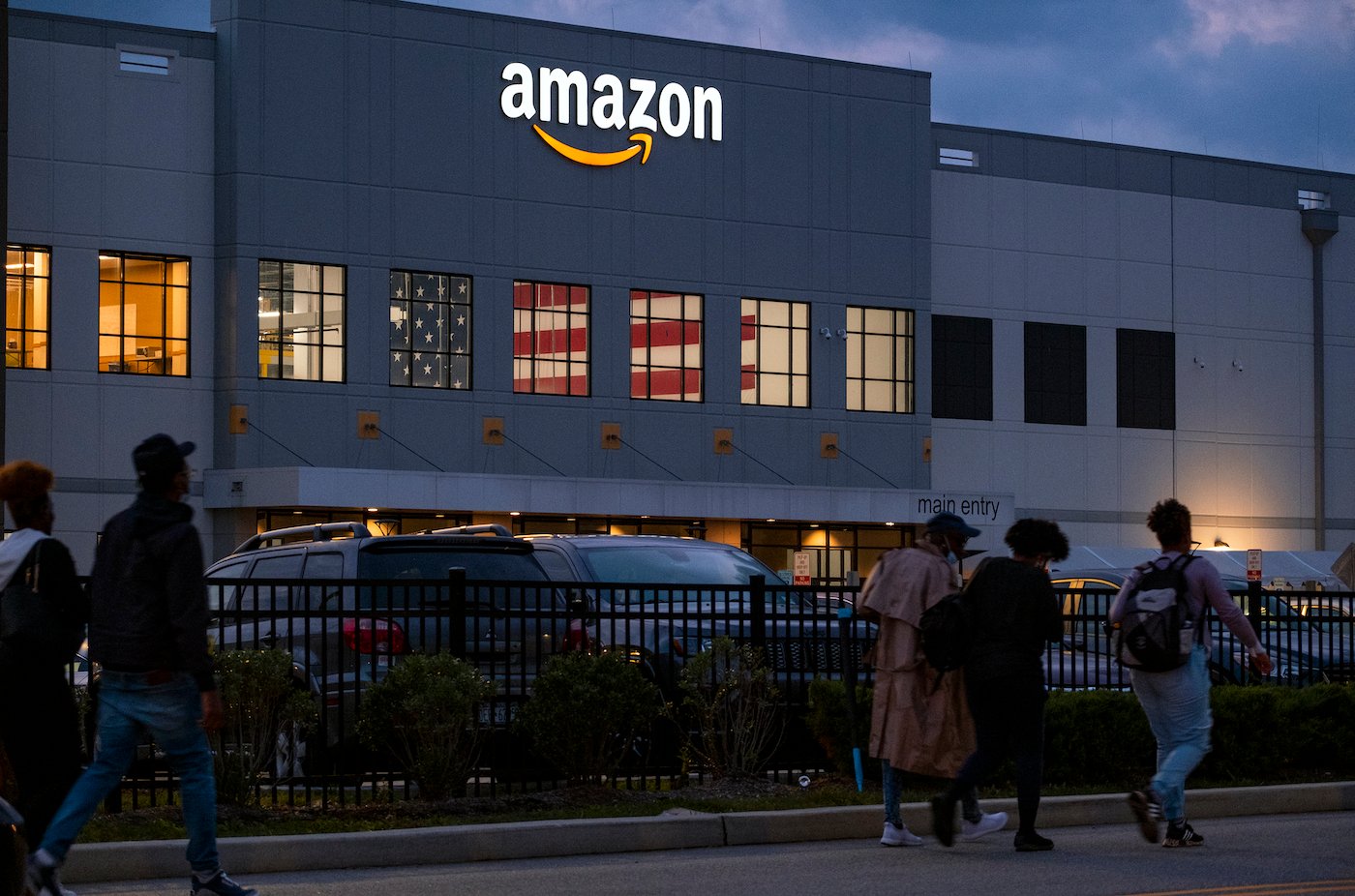(CN) — In a victory for unions and many low-wage workers, the National Labor Relations Board on Thursday widened the definition of a "joint employer" to include franchises like McDonald's, as well as companies that use subcontractors to provide the bulk of their workforce, such as Amazon.
The move reverses a Trump-era rule from 2020 and would essentially force those companies to treat their contracted workers and franchisee's workers more like regular employees. It would make them liable for labor violations and force them to negotiate over collective bargaining agreements.
The new joint-employer standard "reflects both a legally correct return to common-law principles and a practical approach to ensuring that the entities effectively exercising control over workers’ critical terms of employment respect their bargaining obligations," Lauren McFerran, chairperson of the NLRB, said in a statement.
Senator Bernie Sanders also praised the rule change. "Today the NLRB announced a final rule that will help restore fairness to an economy rigged against workers," he said on X (formerly Twitter). "This rule will help ensure corporations cannot avoid their responsibility to collectively bargain with their workers."
Business groups decried the policy change. A spokesman for the National Restaurant Association said it would "create chaos and legal questions across the restaurant industry." The President of the American Hotel & Lodging Association called it "a partisan gambit to force unions on hotel franchisees and their employees as well as countless other small businesses and workers across the country," adding the rule change would be "devastating to the hotel industry."
The NLRB raised the joint-employer standard in 2020, during Trump administration. In order to qualify as a joint employer, companies had to "possess and exercise substantial direct and immediate control" over essential terms and conditions of employment.
Under this new rule, employers must only have the "authority to control essential terms and conditions of employment, whether or not such control is exercised, and without regard to whether any such exercise of control is direct or indirect," according to a press release from the NLRB on Thursday.
Those essential terms include wages, benefits, hours of work or scheduling, assignment of job duties and supervision of performance. If the company has authority for any of those things, than it is a joint employer.
Thursday's announcement marks the final adoption of the rule change, which was first proposed last year over grumblings from some in the industry.
In December, McDonald's general counsel Angela Steele wrote in a comment to the NLRB that the new rule would "destroy the franchise business model" and transform franchise owners into "middle managers."
"While declaring a franchisor and its franchisees to be joint employers might reduce some obstacles to unionization across large franchise systems, it would have the devastating consequence of destroying the franchise business model that powers the U.S. economy," Steele's letter added.
Another commenter — one worked at McDonald's as a maintenance worker for nearly 30 years — disagreed.
"McDonald’s controls nearly every aspect of my job, from the required computer software that tracks our productivity to who we call when the ice cream machine breaks," Richard Eiker of Kansas City wrote in his own comment to the agency. "Though McDonald’s corporate office controls so much of my everyday work, I am unable to hold them accountable for unjust working conditions like low wages and unfair labor practices because I work for a franchisee that exercises control over other aspects of my job, like my schedule."
Companies like Amazon, which uses multitudes of subcontractors to both staff warehouses and to deliver goods all over the world, will also be hugely affected by the rule change.
"Amazon has created a multi-tiered system of labor contracting to sustain its nationwide network of delivery drivers," wrote three lawyers from the National Employment Law Project in a letter to the NLRB, arguing in favor of the rule change. "Amazon sets the policy, surveils the workers, and contractually requires [the subcontractors] to discipline drivers — but it avoids directly punishing drivers on its own."
"Absent a strong joint employment standard that accounts for this kind of indirect control through surveillance, these workers may not be able to demand that Amazon bargain as a joint employer over these invasive tracking measures," the lawyers argued.
The new rule is set to go into effect on December 26.
Subscribe to Closing Arguments
Sign up for new weekly newsletter Closing Arguments to get the latest about ongoing trials, major litigation and hot cases and rulings in courthouses around the U.S. and the world.









